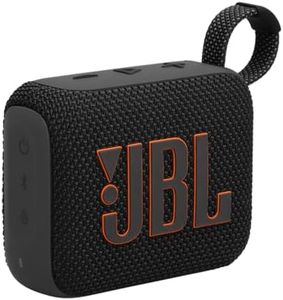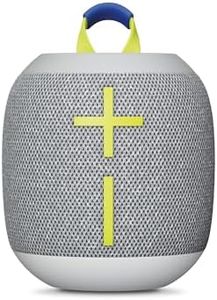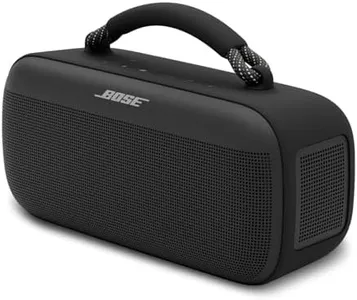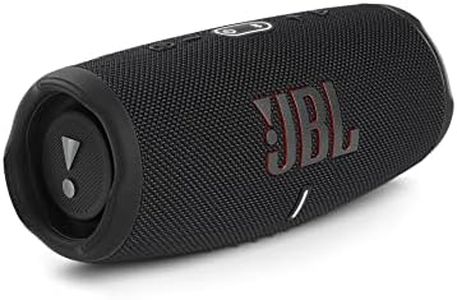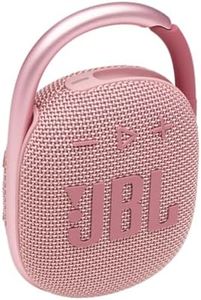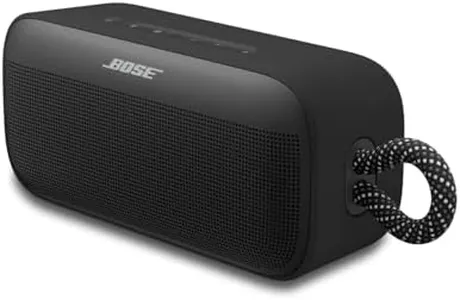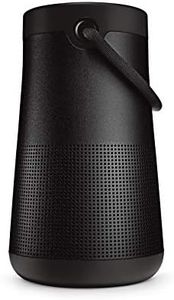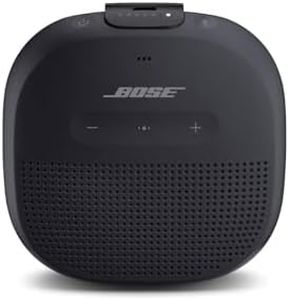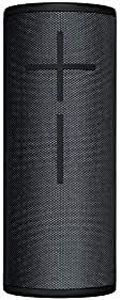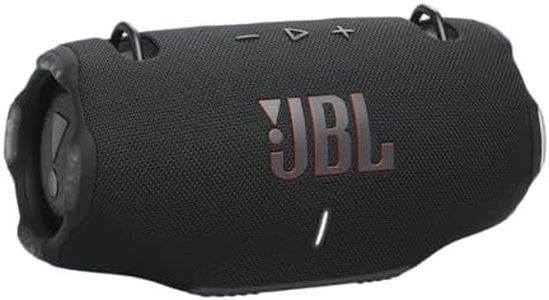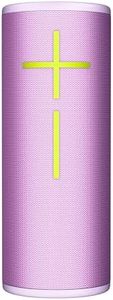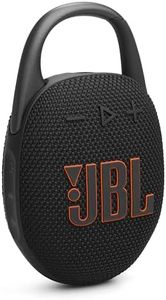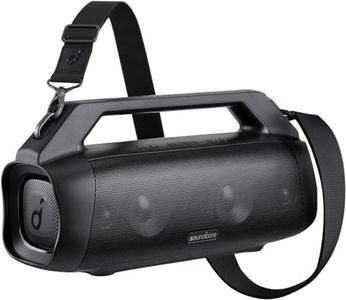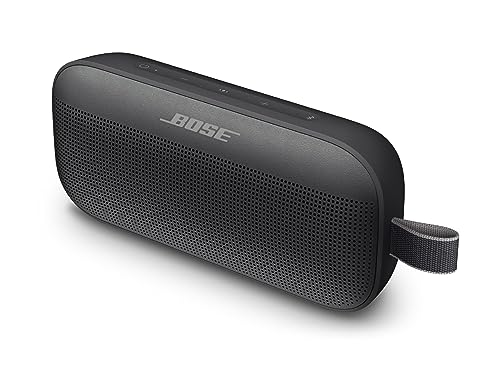We Use CookiesWe use cookies to enhance the security, performance,
functionality and for analytical and promotional activities. By continuing to browse this site you
are agreeing to our privacy policy
10 Best Rugged Bluetooth Speakers
From leading brands and best sellers available on the web.Buying Guide for the Best Rugged Bluetooth Speakers
When picking a rugged Bluetooth speaker, you're looking for something that not only delivers good sound quality but is also built to handle tough environments. These speakers are designed for outdoor adventures, travel, and on-the-go use, and durability is a top factor. Start by thinking about where and how you plan to use your speaker most often: are you taking it to the beach, camping, or just want it for backyard parties? This helps you prioritize the features that matter most to you. Remember, the goal is to balance toughness, sound quality, battery life, and portability to best match your activities.Durability and RuggednessThis spec refers to how well the speaker can handle impacts, drops, and rough handling. It's important because a rugged speaker is meant to survive bumps and occasional drops that may happen during outdoor use. You will often see ‘military grade’ or ‘shockproof’ listed. Some speakers are only resistant to splashes, while others can survive being dropped from several feet. If you’re planning heavy outdoor use, aim for higher rated ruggedness.
Water and Dust Resistance (IP Rating)IP ratings indicate how resistant a speaker is to water and dust. This is crucial if you’ll be bringing your speaker near water or in dusty conditions. The rating usually looks like IPX4, IP67, etc. For the outdoors, higher numbers are better. For occasional spills or rain, IPX4 (splash resistant) is fine. If you'll be at the beach, pool, or hiking in all weather, IP67 or above means it can handle serious dust and immersion in water. Choose a rating that comfortably matches your expected environments.
Battery LifeBattery life measures how long the speaker can play on a single charge. It's important so you’re not left without music halfway through the day. Values can range from a few hours up to 24 hours or more at moderate volume. For hikes or day trips, 8-10 hours may be enough. For camping weekends or extended use, look for 15 hours or more. Consider how long your typical use session is and pick a battery life that covers it.
Sound Quality and LoudnessThis includes things like clarity, bass, and how loud the speaker can get. A rugged build shouldn’t mean bad sound. Some models focus on rich bass and deep sound, while smaller ones might be more limited. If you’re using it in open spaces or with a group, louder output helps the music carry. If it’s just for small personal gatherings, midrange speakers are usually enough. Always consider your listening environment and whether you want just background music or room-filling sound.
Portability (Size and Weight)Portability tells you how easy it is to carry or pack the speaker. Big speakers may sound better and last longer, but are harder to take everywhere. Smaller models are easier to clip to bags or put in a backpack, giving up some sound power. Think about whether you’ll be traveling on foot, by bike, or car, and choose a size and weight that fits your travel style.
Connectivity FeaturesMost rugged speakers offer Bluetooth connectivity, but check the Bluetooth version for range and stability. Some also offer extra features like NFC pairing, stereo pairing with a second speaker, or auxiliary inputs for wired connections. If connecting to different devices or sharing with friends is important, look for broader compatibility. Pick what you’ll use most often to keep things simple.
